Our Story - Our History
EMMRC Kolkata began its journey as a modest Audio Visual Research Centre (AVRC) in August 1986 following UGC’s approval of a budgetary support. The basic objective of this endeavour was to complement the efforts of teachers through technology-driven media and reach high-quality educational input to students in resource-poor areas through Countrywide Classroom (CWCR) telecast over Doordarshan National Network. In 1991, AVRC was upgraded to Educational Media Research Centre (EMRC), with more posts, most equipment, and above all more responsibility. In 2004, EMRC was rechristened as Educational Multimedia Research Centre (EMMRC) in order for it to diversify its activities taking advantage of the emerging digital technologies. It is the only media centre hosted by an undergraduate college, unlike sixteen other centres that are hosted by universities or central institutes of higher education.
EMMRCs core activity is the production of educational television programmes, some syllabus-oriented instructional ones and others in documentary format for enrichment of young minds. The programmes cover a large number of subjects from the disciplines of science, technology, humanities, commerce, and bio-science. Recently it is concentrating on producing video-lectures, keeping the use of intricate television language to the minimum and concentrating on the teacher and the message. In 23 years of its existence, EMMRC Kolkata has produced more than 1500 educational programmes in English and around 500 in Bengali. This centre has won 80 awards for its efforts over the years.
Since 2002, all programmes are being converted into multimedia e-content DVD, augmenting the visual contents with substantial textual content like the entire lecture and commentary, a set of glossary, Frequently Asked Questions (FAQs) and references for convenience. There is also an interactive part including a short quiz and assignments for self practice. E-learning inputs devised by the centre provide students education at his/her convenience anytime, anywhere. Full fledged online courses are offered over a prescribed period. So it provides an opportunity for students to interact ‘live’ with experts through multipoint video-conferencing using the Edusat platform. At the end of the teaching – learning period, the students go through a process of evaluation, involving online tests and assignments.
EMMRC often builds a bridge between eminent resource persons based in the city and students from far flung areas of the country by uploading lectures-on-demand through the multicast facility of the Edusat platform. Students not only receive the lectures from their base locations but also the opportunity for a live interaction with the expert. With a view to making the communication process fruitful and useful for students the centre conducts regular research. This includes Formative Research in order to arrive at a suitable format for a programme/series, and Summative Research to assess if a programme/series has reached the desired goal on the basis of feedback from viewers.
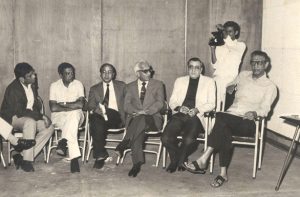
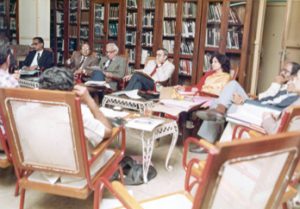
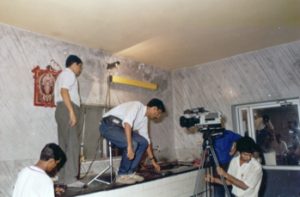
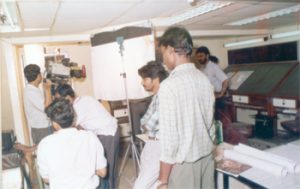
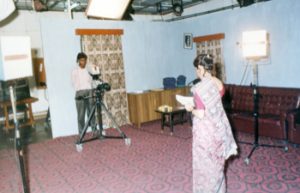
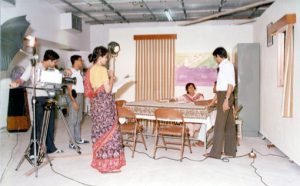
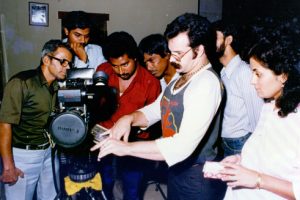
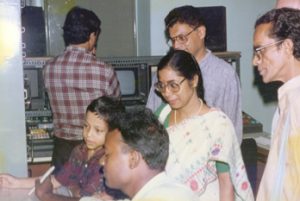
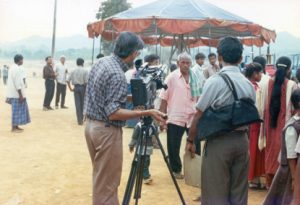
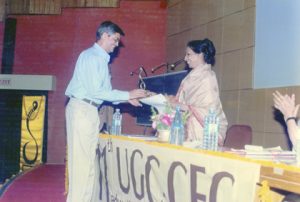
Since 1999, EMMRC Kolkata has been producing a half an hour Bengali programme Barnali (spectrum), by dubbing general interest programmes from the CWCR archives. It has caught up as a vehicle for regional outreach, and is now telecast over Doordarshan’s Bengali satellite channel five days a week.
EMMRC Kolkata is home to a dedicated group of educational communicators. Ignoring the lure of higher remuneration and greater mobility in the private sector,this group has stayed with EMMRC Kolkata out of a sense of commitment towards educational communication. Thanks to this group, this centre has been acknowledged time and again. EMMRC Kolkata keeps on setting benchmarks for others to emulate.
